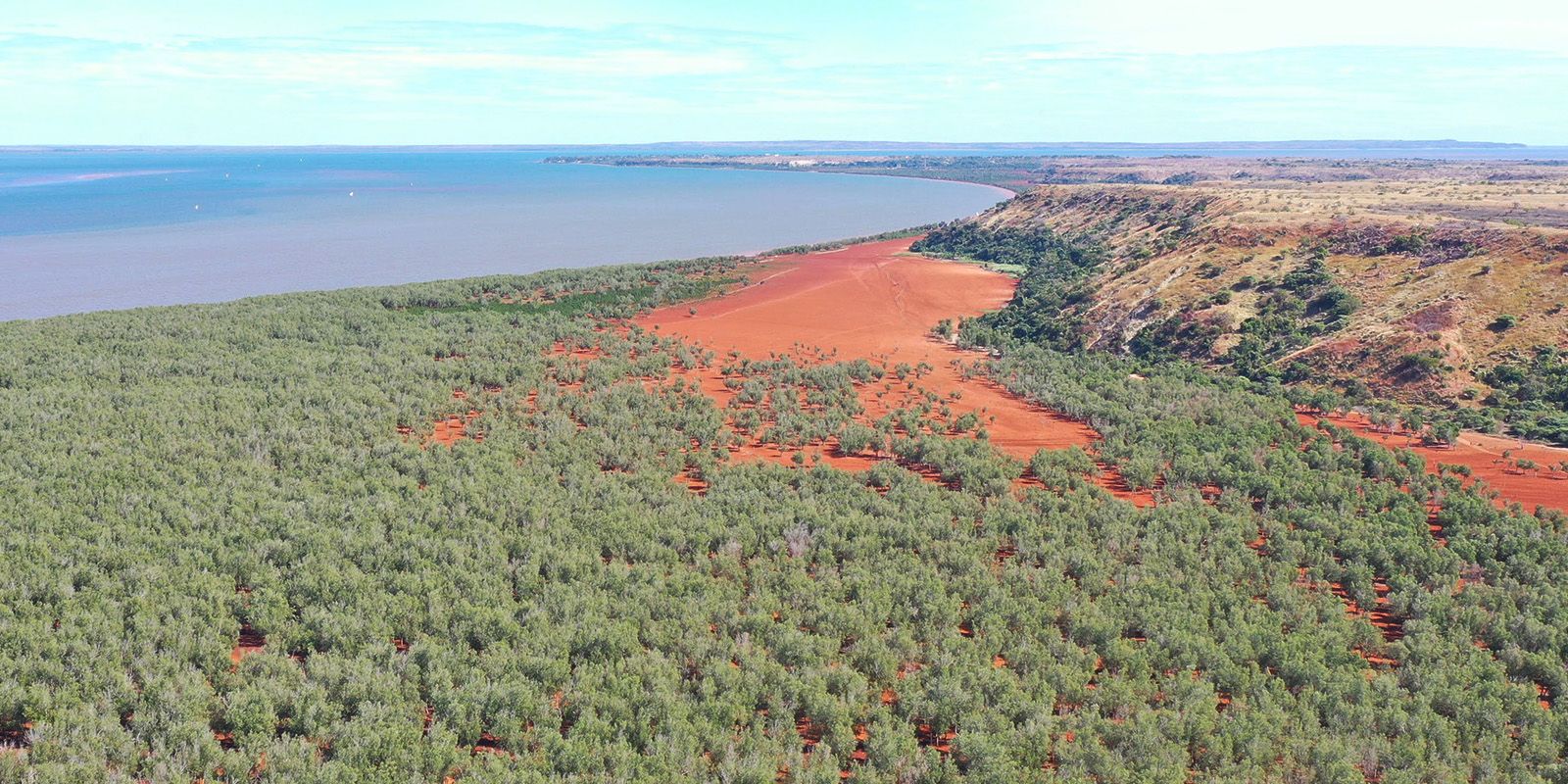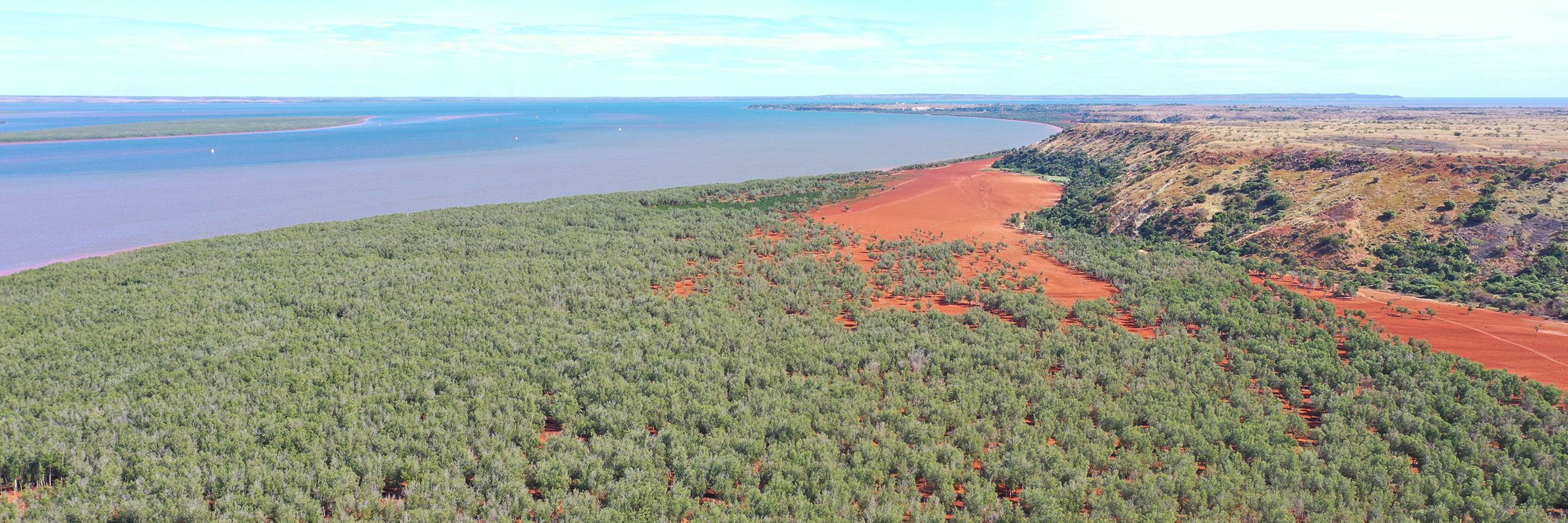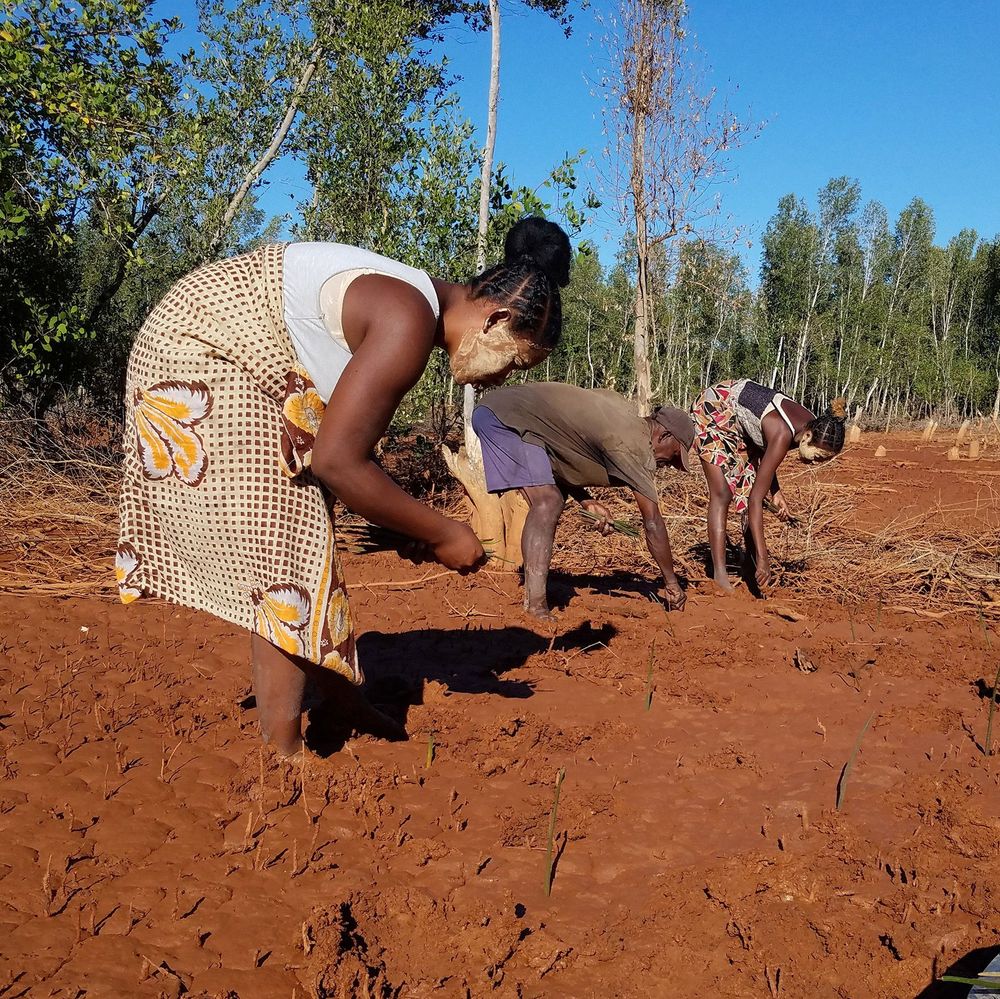We started this initiative to help regenerate carbon-absorbing and biodiversity-rich habitats while doing good for communities around the world; it's incredible to see it bloom.
We started this initiative in 2019 to help regenerate carbon-absorbing and biodiversity-rich habitats while doing good for communities around the world; it's incredible to see it bloom. Not all tree planting schemes are equal, and it is our wish to make the most impact we possibly can. We don't just scatter seeds in the local park or plant the easy ones, either - we spent months finding the perfect partner who could make the biggest environmental and social contribution, working in harmony with the local community.
Our reforestation efforts have evolved over the years and we now plant trees exclusively in Kenya restoring coastal mangroves and through our planting partner, creating jobs in communities that need them.
Mangroves absorb CO2 through both the soil in which their dense roots grow, as well as the air around them, meaning they’re able to take much more than other species. In fact, studies have shown that mangroves can sequester as much as four times of carbon as rainforests can.
Not only do they reach their full maturity quicker for maximum CO2 absorption, but they are crucial for marine ecology and play a key role in helping halt coastal erosion - another big problem for locals and the climate alike.
Our reforestation efforts have evolved over the years and we now plant trees exclusively in Kenya restoring coastal mangroves and through our planting partner, creating jobs in communities that need them.
Mangroves absorb CO2 through both the soil in which their dense roots grow, as well as the air around them, meaning they’re able to take much more than other species. In fact, studies have shown that mangroves can sequester as much as four times of carbon as rainforests can.
Not only do they reach their full maturity quicker for maximum CO2 absorption, but they are crucial for marine ecology and play a key role in helping halt coastal erosion - another big problem for locals and the climate alike.


